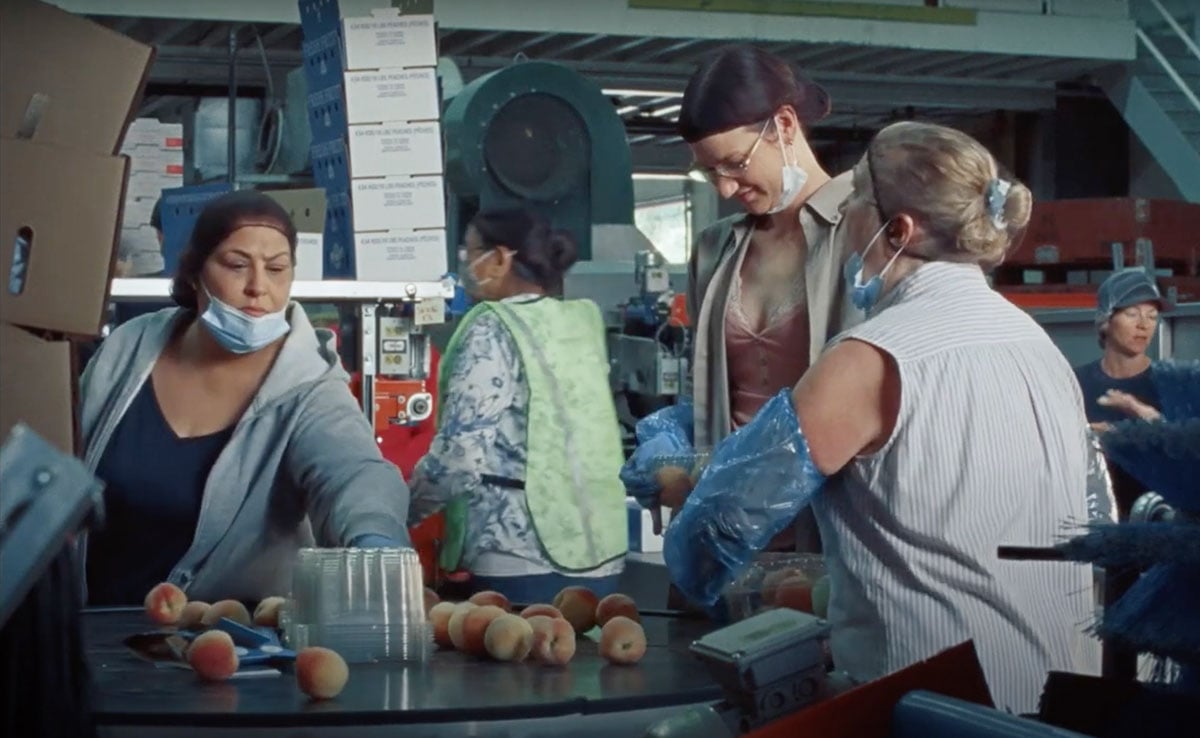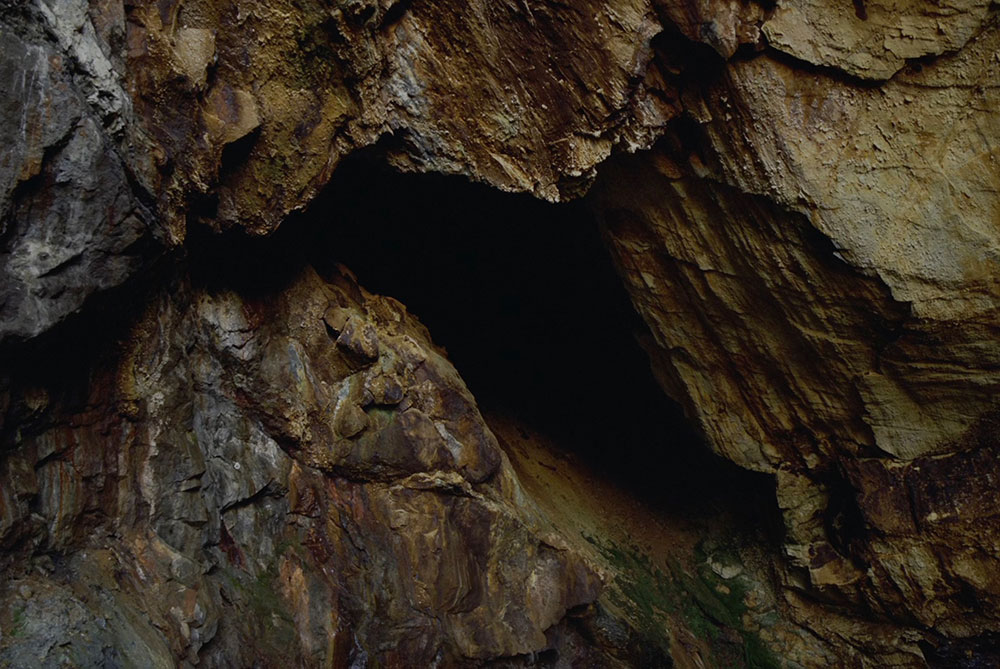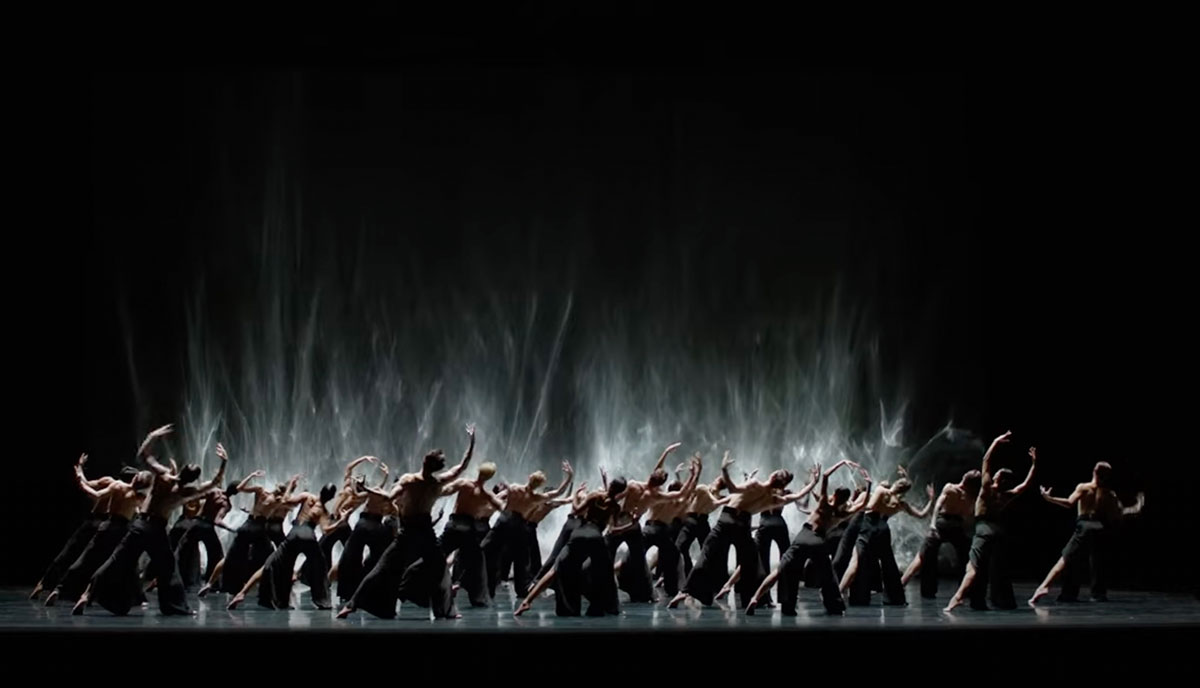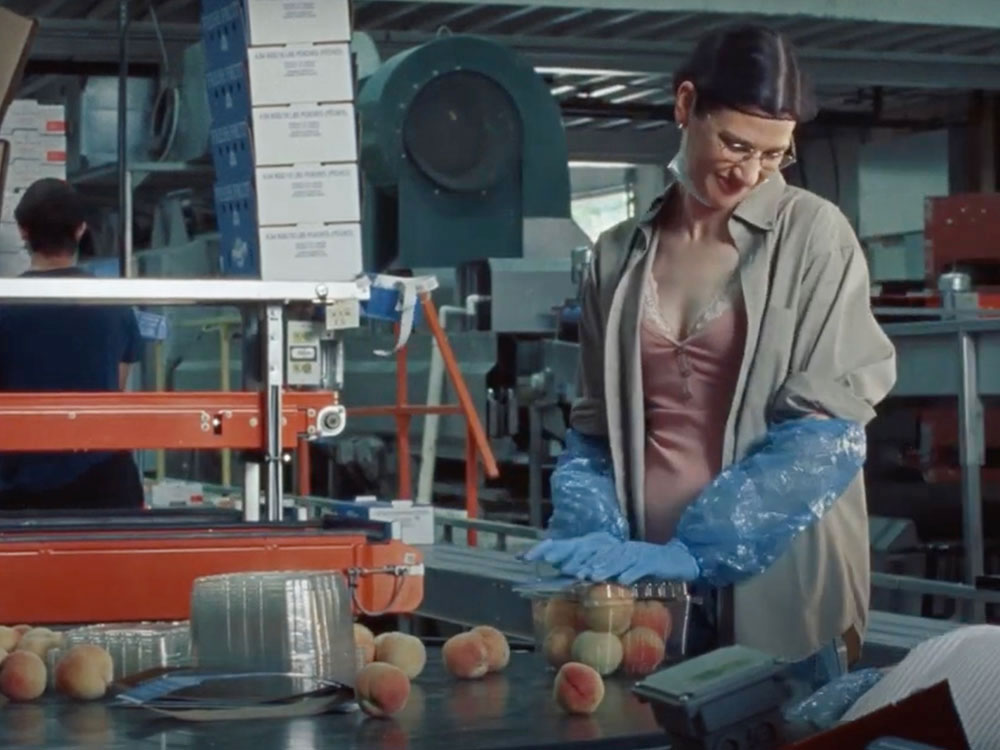The Vancouver International Film Festival is in full swing. Here’s my last instalment of cinematic suggestions (following up on yesterday’s first batch.)
Lay Down Your Heart
Director Marie Clements’ other film playing at VIFF this year is a sweetly charming, idiosyncratic gem. Playing is the operative word here, as the film takes a decidedly lighthearted approach to the life and times of Vancouver theatre artist Niall McNeil.
McNeil has a fashioned a remarkable career, co-writing award-winning plays, acting, composing and teaching. He also has Down syndrome. The play Peter Panties, which McNeil co-wrote with Marcus Youssef, won the Jessie Richardson Critic's Choice Innovation Award in the theatre in 2011.

Copious amounts of humour and fun are also levelled at the documentary form itself: there’s footage of Clements joshing with her subject off-camera, and McNeil’s friends and family weighing in on his childhood, career and general all-round exploits. Without a doubt, McNeil is a star, as he recounts to the camera about his and Clements’ courtship, marriage and subsequent breakup. (Note: the facts of the marriage might have incurred a wee bit of creative license.)
Organized in a roughly chronological fashion, the narrative touches on McNeil’s childhood at the Caravan Farm Theatre, where he grew up surrounded by creative people and a freedom to grow and develop as an artist. Many of the folk interviewed in the film, be they actors, writers or musicians, talk about the nature of creative collaboration. It’s a reminder of the power of imagination to forge not only great works of art but also lasting bonds of love and fellowship.
Populated with bright and colourful animation that takes inspiration from McNeil’s artwork, the film possesses a warm heart that truly feels like a balm to the soul.

Until Branches Bend
A random discovery of an invasive pest inside a peach sets the stage for big-time, small-town drama in director Sophie Jarvis’s carefully observed film detailing Okanagan life. The willowy Robin (Grace Glowicki) is already dealing with a number of problems before she finds the six-legged invader. An affair with her married boss has resulted in an unexpected pregnancy, and her kid sister Laney (Alexandra Roberts) has taken up with a bougie college dude.
After the insect invasion comes to light, Robin’s co-workers are ready to strangle her for going public, thus putting them in danger of losing work. Effectively rendered persona non grata by the townsfolk, Robin’s mental health begins to drift into untethered territory, as the local orchard industry grinds to a shuddering halt.
The film leans heavy on Robin’s slender shoulder and often errant bra straps, and Glowicki anchors her performance in the stolidity of a good-hearted and fundamentally honest human being — although, there aren’t too many more of those in the film. Other townsfolk, including Robin’s secret lover Dennis, the sleazy corporate boss of the peach packing plant, are somewhat less than honourable.
As the narrative builds to a biblical end, some of the events depicted strain credulity, but Jarvis’s ability to create a potent and undeniable sense of atmosphere is strong stuff. The sulfurous, stultifying feeling of the Okanagan in late summer, when lingering smoke turns the sky a flat ocher, is both oppressive and ominous. Pall is the word.
Fogaréu
In a different corner of the world, another young woman is seeking to uncover corruption and long-held secrets. A prodigal daughter returned home, Fernanda (Bárbara Colen) initially finds a warm welcome when she visits her birthplace and the home of her extended family, but it doesn’t take long to realize that there is something rotten in the town of Goiás.
Almost immediately after her arrival, she notices a curious number of disabled people in the village. The locals bluntly term these folk “fools” and make use of them as household workers and virtual slaves. As Fernanda delves more deeply into her family history, as well as the town itself, things take on an even darker cast.
Director Flávia Neves has a keen eye and great capacity for finding beauty, whether in the dusty landscape of rural Brazil or the worn faces of the townspeople. Unfortunately, some of the dramatic happenings are a little overwrought.
As Fernanda continues on her quest to figure out the town’s secrets, things begin to spiral into the territory of the sinister and the surreal. Under the surface of the escalating action, Neves is contending with some pretty serious ideas: namely, Brazil’s brutal colonialist history. Unfortunately, the final coda of the story feels more telenovela rather than genuine catharsis.

Rebellion
For all of the dramatic events that the environmental activists in Extinction Rebellion have organized in the last number of years, everything from shutting down the Tower Bridge in London to gluing themselves to various centres of power, one might expect a documentary about the organization to be equally as action packed, but one would be wrong.
Directors Maia Kenworthy and Elena Sánchez Bellot focus on the inner workings of the organization, down to the familial level. When an organic farmer by the name of Roger Hallam started the group in 2018, he’d had it with endless studies, committees and compromise that continually kicked dealing with climate change down the road.
The ethos of Extinction Rebellion from the outset was make good trouble, and that’s what they did, upsetting the economic applecart and calling out hypocrisy wherever they found it. But Hallam’s methodology did not always endear him to his comrades, and even his own daughter Savannah Lovelock grew frustrated with how operations were proceeding.
A key event, flying drones into Heathrow Airport’s exclusion zone airspace, precipitated a more serious crackdown on the organization’s activities, but even before that, the number of arrests made the inner collective workings of the group hard to manage.
Rebellion is a cogent reminder that big change often comes at a personal cost. As Hallam remarks in the film, “You keep going until you’re banged up, or you’re dead.” But for others involved in the movement, finding a way forward that doesn’t necessitate that level of sacrifice is paramount. As the younger members contend with burnout and the other wages of fighting a war on behalf of the planet, finding a way to keep on keeping on becomes critical.

Anyox
To be perfectly frank, Anyox is a deeply beautiful film that also tries one’s patience. Taking a page from the Harvard’s Sensory Ethnography Lab, responsible for creating films like Leviathan and Manakamana, filmmakers Jessica Johnson and Ryan Ermacora embed in the tiny community of Anyox, B.C.
Located in remote, near inaccessible part of the province, Anyox is home to only a couple of people. The copper mine that once put the place on the map is long gone, and the remaining inhabitants eke out an existence through salvage. It is a ghost town proper, but the ghosts don’t rest easily here. After the extractive industries shut down and a forest fire further gutted the place, most people left. What they left behind (environmental blight and degradation) may last longer than anything else.
If you can resist the urge to scream “hurry up!” there is a lot to like about the film, including a brand of bleak beauty that resides in the enormous slag heaps and barren hillsides.
Crystal Pite: Angels’ Atlas
Angels’ Atlas, from Vancouver-based choreographer Crystal Pite, was the last production to take the stage of the National Ballet of Canada in the winter of 2020. When things opened back up again in the autumn of 2021, it was the first show to return to the stage.

The first part of director Chelsea McMullan’s documentary is composed of observational-style footage of the performers in raggedy rehearsal wear and the second half is of the dance performance itself.
It makes for an interesting contrast, but there’s also a sense that everyone is on their best behaviour, trying hard to say the right things. The film, commissioned by The National Ballet, also feels a bit self-regarding. One wishes for a bit more human grittiness, some swearing or crankiness, something that feels a little less rehearsed in the opening scenes.
The actual dance is gravely beautiful, set against a backdrop of reflected light that descends like smoke or mist around the bodies of the performers. But there is something missing. Dance on camera is not always the easiest or most natural of matchups. All of the electric and cathartic stuff that attends live performances becomes somewhat stilted on camera. It doesn’t matter how great the performers or how innovative the choreography, the energy simply doesn’t translate all that well.
Last Flight Home
Ondi Timoner’s new documentary is a deeply intimate and personal film. When Eli Timoner, the family patriarch, decides he is ready to die, the entire family gets involved. What ensues is a remarkable record of Eli’s final days. Sorrow, joy and a surprising amount of humour elevate the into a true testimonial to the enduring power of love and family.
Soviet Bus Stops
Pretty much like it sounds. If you like weird bus stops and Russian oddity, fill your boots.
The Vancouver International Film Festival runs from Sept. 29 to Oct. 9. ![]()
Read more: Film
















Tyee Commenting Guidelines
Comments that violate guidelines risk being deleted, and violations may result in a temporary or permanent user ban. Maintain the spirit of good conversation to stay in the discussion.
*Please note The Tyee is not a forum for spreading misinformation about COVID-19, denying its existence or minimizing its risk to public health.
Do:
Do not: